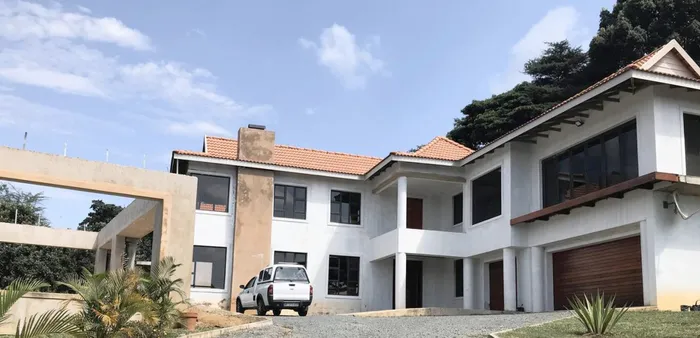
The recent changes to South Africa's exchange control manual could discourage new foreign investment into the country.
Image: Supplied
Non-residents who own property in South Africa will now need an application for an international transfer(AIT) to remit their rental income abroad.
This additional compliance burden and delay in accessing their funds will discourage non-residents from owning SA property, says Michael Kransdorff, the director of The Institute for International Tax and Finance.
“It applies to individuals who are both South African expats and non-residents.”
The financial emigration tax experts say that last week, the South African Reserve Bank's Financial Surveillance Department issued updated guidance in the exchange control manual that fundamentally changes the treatment of income remittances for non-residents.
Historically, capital transfers by non-residents required an application for an international transfer (AIT) tax compliance status PIN from SARS, while income could be remitted without such approval, they say.
Changes could discourage new foreign investments
Kransdorff says the recent changes to South Africa's exchange control manual could discourage new foreign investment into the country, incentivise existing non-resident investors to divest from local assets and reduce liquidity on the JSE.
He says it may also prevent non-resident investors from accessing their South African income for weeks or even months, increase transaction costs and administrative complexity for legitimate investors and create a competitive disadvantage compared to other emerging markets.
The Institute for International Tax and Finance has expressed serious concerns over these changes, saying they introduce significant new compliance burdens for non-residents and risk undermining foreign investment at a critical time for the country's economy.
Under the new requirements, several categories of income now require an AIT for non-residents, including dividends, profits, and income distributions, Directors' fees, Trust income and Rental income.
Meanwhile, the firm says other income types remain exempt from the AIT requirement, including interest, salaries, fees for services rendered, pensions and annuities.
Inconsistencies flagged
"This creates an inexplicable inconsistency in the treatment of different types of income. There is no rational basis for requiring an AIT for dividends but not for interest, or for rental income but not for service fees.
"This arbitrary distinction makes no sense and will only serve to confuse and frustrate foreign investors," Kransdorff says.
The emigration tax experts say the particularly concerning aspect of the new regime is that, unlike local residents who benefit from a R1 million annual single discretionary allowance to remit funds abroad without requiring SARS tax clearance, no such threshold exists for non-residents.
This means that AITs will be required even for relatively small income amounts, placing a disproportionate administrative burden on non-resident taxpayers, they add.
They say non-residents who are not registered as taxpayers with SARS cannot escape the additional compliance burden. These individuals must obtain a manual letter of compliance – international transfer from SARS.
AIT process requirements
The AIT process requires submission of extensive documentation, including documentary proof of non-residency status. Detailed source of funds documentation, Recent bank statements proving the availability of the funds and a statement of assets and liabilities for the past three years.
According to SARS guidelines, the revenue authority has up to 21 business days to process an AIT application, they say. However, in practice, it says processing times are considerably longer as SARS frequently requests additional information.
“This means non-resident investors may be unable to access their South African income for weeks or even months.”
The timing of these changes is particularly concerning, the director says. He adds that South Africa has been working to attract foreign investment, and non-resident investors play a crucial role in the JSE's liquidity and depth.
Recent data shows that foreign investors sold a net R113.3 billion in JSE-listed shares in 2024, continuing the decline in foreign ownership of the JSE from highs of over 50% in years before the Covid-19 pandemic.
FATF greylist exit victory
"This is an own goal of significant proportions," Kransdorff emphasises. "South Africa was recently removed from the FATF grey list after two years of intensive reforms to restore confidence in our financial system.
"Now, without any prior warning or consultation, we are introducing new barriers that will actively discourage foreign investment. The message being sent to international investors is deeply troubling."
The Institute for International Tax and Finance calls on the South African Reserve Bank to:
"South Africa cannot afford to send mixed signals to foreign investors," Kransdorff says. "We need to be making it easier, not harder, for non-residents to invest in our country. These changes urgently need to be reconsidered."
Independent Media Property
Related Topics: